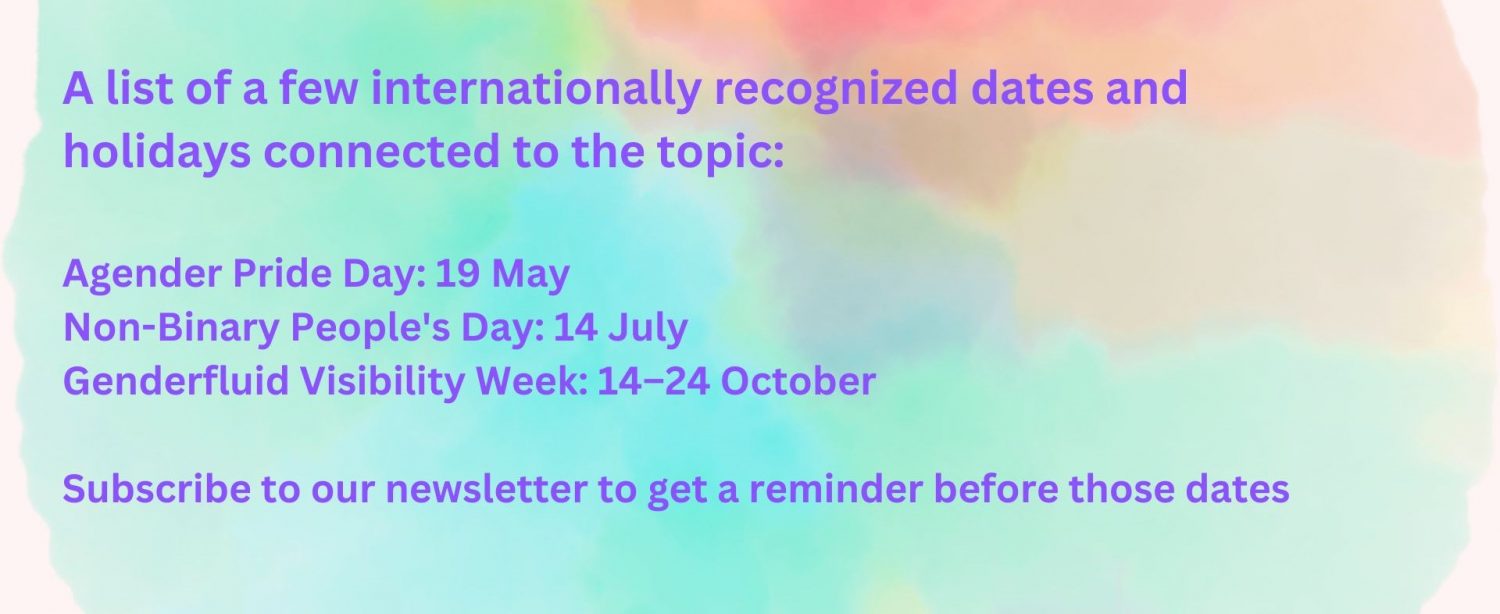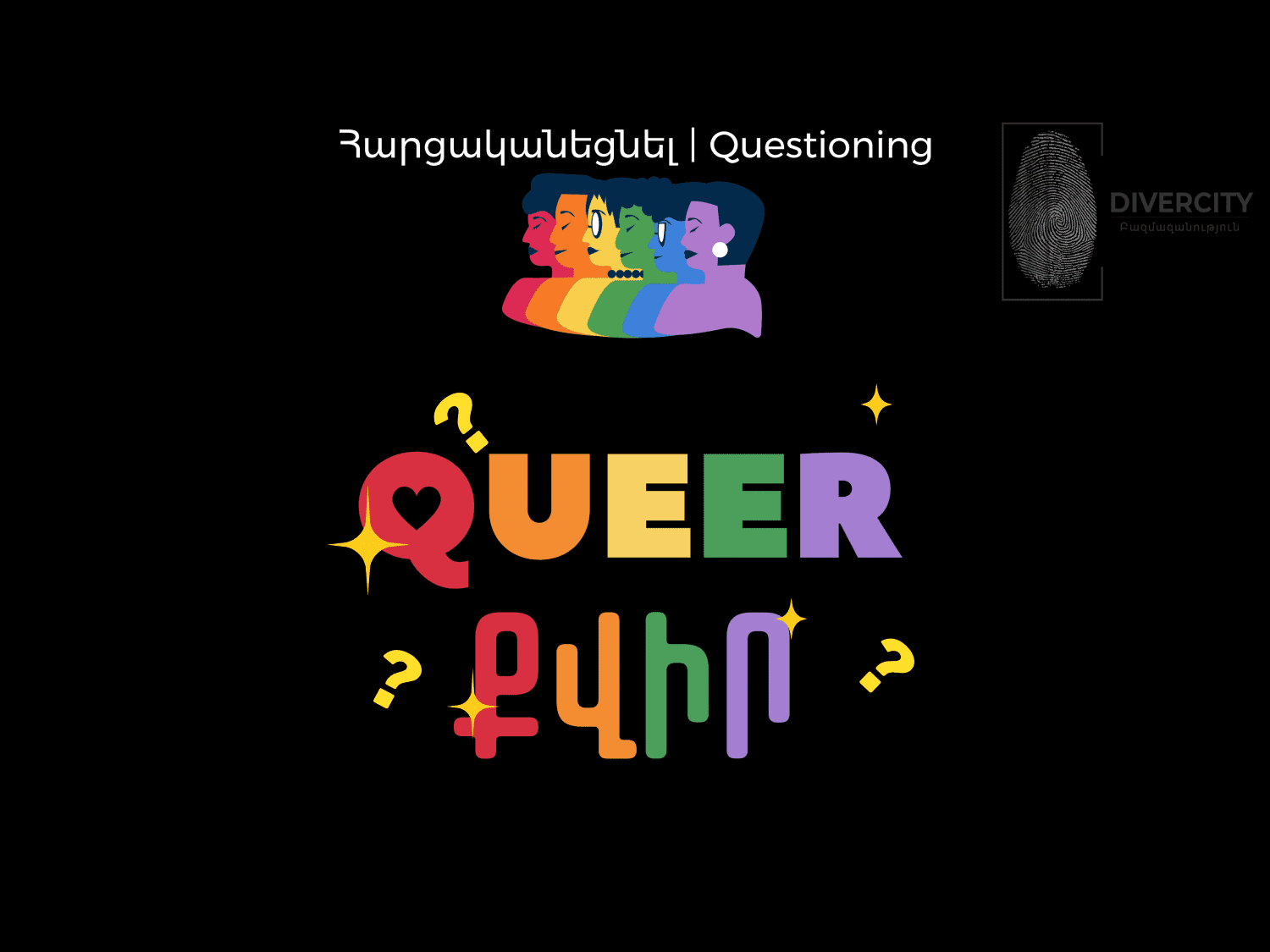Navigating Identity in the LGBTQIA+ Community
It is often rumored that there is some mysterious “rainbow government” behind the generation that tends to employ more and more terms for their identities. In other words, it’s difficult to understand the need for creating new and new terms for identities, sometimes so similar. Although you don’t need to be an expert to know the full abbreviation of LGBT, why do people basically generate new terms? The truth is simple: Questioning is at the heart of it all. It is the letter Q of the abbreviation LGBTQIA+ that represents Questioning and Queer. Each of these two words contains many different, sometimes conflicting meanings, but we will try to bring you through them all as well as look at some stereotypes about queer people and questioning. We hope to bring some clarity to the issue and, of course, give vital advice.
Understanding Questioning
Understanding Terms
Let’s start with the terms. Questioning means exactly what it sounds like: it gives a nod to those who are unsure about their sexuality and/or gender identity, who are currently in the process of exploring it, or who are concerned about applying a social label to themselves for various reasons. At the same time, the term reflects the whole concept of constantly exploring and understanding life and your place in it. Both of these meanings underscore the importance of self-discovery and self-definition, but with diverse durations.
The term “queer” has been reclaimed by many in the LGBTQIA+ community and is now also used in two ways: as an identity, challenging labels and binaries, and as a replacement for the constantly growing acronym LGBT. The beauty of this term is that people don’t have to box themselves into one sexual identity or gender. The word Queer contains all various experiences out of hetero-/cis-normativity* (denoting or relating to a world view that promotes heterosexuality* as the standard or preferred sexual orientation).
One common concern with the term queer is that the term has historically been used as a slur and is still often weaponized against LGBT people. But it’s essential to respect individual preferences without being willing to put them on themselves.
- If someone uses a word like queer to describe themselves, ask what that label means to them. Open dialogue and establish mutual understanding to foster a more inclusive community. At the same time, respect people’s privacy and don’t ask invasive questions about people’s orientation, expression, identity, or bodies.
Exploration is not just encouraged
Experimenting with your gender and sexuality can be a tough challenge yet a wonderful journey, but it is necessary to give you new insight into yourself and help you learn new things about what you like. Sometimes, people who are questioning their gender or sexuality worry that they are just faking or making up their feelings, but faking is something you have to do on purpose! If you were faking it, we bet you’d know. We inspire individuals on their journey of self-discovery, but we always remind them to stay mindful that such quests require strength and, in our society, often demand courage due to the lack of safe spaces to explore their identities.
That said, it’s also okay if you question your gender and sexuality and end up deciding that your journey doesn’t bring you to anything outside of being cisgender or heterosexual. All that means is that you’re approaching your gender and sexuality with intention, after having thought about other people’s experiences and thinking seriously about what it is that you want for yourself. And that’s pretty great!
The only thing you definitely shouldn’t do is question other people’s identities. It is extremely important to keep in mind that not all people need or are interested in this particular way of exploring themselves. Embrace yourself, and this will already inspire enough of those around you who will need it.

Taking Baby Steps
Navigating questioning can be overwhelming, prompting individuals to take one step at a time. Rather than rushing into wholesale changes, it’s okay to proceed gradually, addressing each aspect of identity at a manageable pace. Even though finding ideally fitting labels can bring excitement, remember that your experience and feelings are valid even without specific terms. The magic of those umbrella terms, such as queer, questioning, transgender* or non-binary, is that you can have some space for experiments and, at the same time, have a possible connection with people who share your experiences.
Supporting Queer Individuals
Genderqueer individuals in Armenia, as almost everywhere in the world, often face discrimination and violence, highlighting the need for allies. Simple gestures like asking for pronouns and respecting privacy can go a long way in creating a supportive environment. According to a report by the Trevor Project, having just one accepting adult can reduce the risk of suicide among LGBTQ+ young people by 40%.
Pronouns Etiquette
Even though the Armenian language has no grammatical gender, not even in the pronoun, communicating with foreigners might bring new tasks to everyday life. Let’s internalize these easy rules and move together towards zero discrimination.
- Understanding the Meaning of Pronouns
Quit saying “I use male/female pronouns” or “I use regular pronouns.” Asking people to share their pronouns does not tell you anything about a person’s identity, just how they’d like to be addressed (e.g., their name).
- Don’t Make Assumptions
If you don’t know what pronouns someone uses, it’s alright to ask. In fact, it’s far more polite to ask than to guess. Another option would be to use the pronoun “they” when you do not know the person’s gender. In any way, avoid making assumptions about people’s gender identity based on how they look or act.
- Don’t Target People
During the first meeting, you can set up a friendly atmosphere by introducing yourself and mentioning your pronouns. For example, you might say, “Hello! I’m Maryam, and I use she/her pronouns.”
If you’re in a group where you’re going to ask about one person’s pronouns, you should ask about everyone’s pronouns. You might say, “Can we all give our pronouns if everyone is comfortable? I use they/them/theirs.”
- Correct Yourself If You Make a Mistake
It is very possible that you will mess up a nonbinary or genderqueer person’s pronouns in the future, even if you share the same identity. It is best to apologize quickly (“Sorry!”), correct your sentence and continue the conversation in such situations. Though it’s important to apologize, you should not offer a drawn-out apology where the individual in question has the spotlight on them and is then forced to comfort you for misgendering them.
Questioning and being queer are not just phases but profound journeys of self-discovery, self-acceptance and wonderful identities. By embracing uncertainty and supporting one another, we can create a more inclusive and understanding community for all LGBTQIA+ individuals on their path to authenticity and fulfillment.
______
* Heterosexuality: Heterosexual people are sexually or romantically attracted to people of the opposite sex.
* Transgender: It is an umbrella term for persons whose gender identity, gender expression or behavior does not conform to that typically associated with the sex to which they were assigned at birth.
______
Resources for Further Understanding:
![]()



